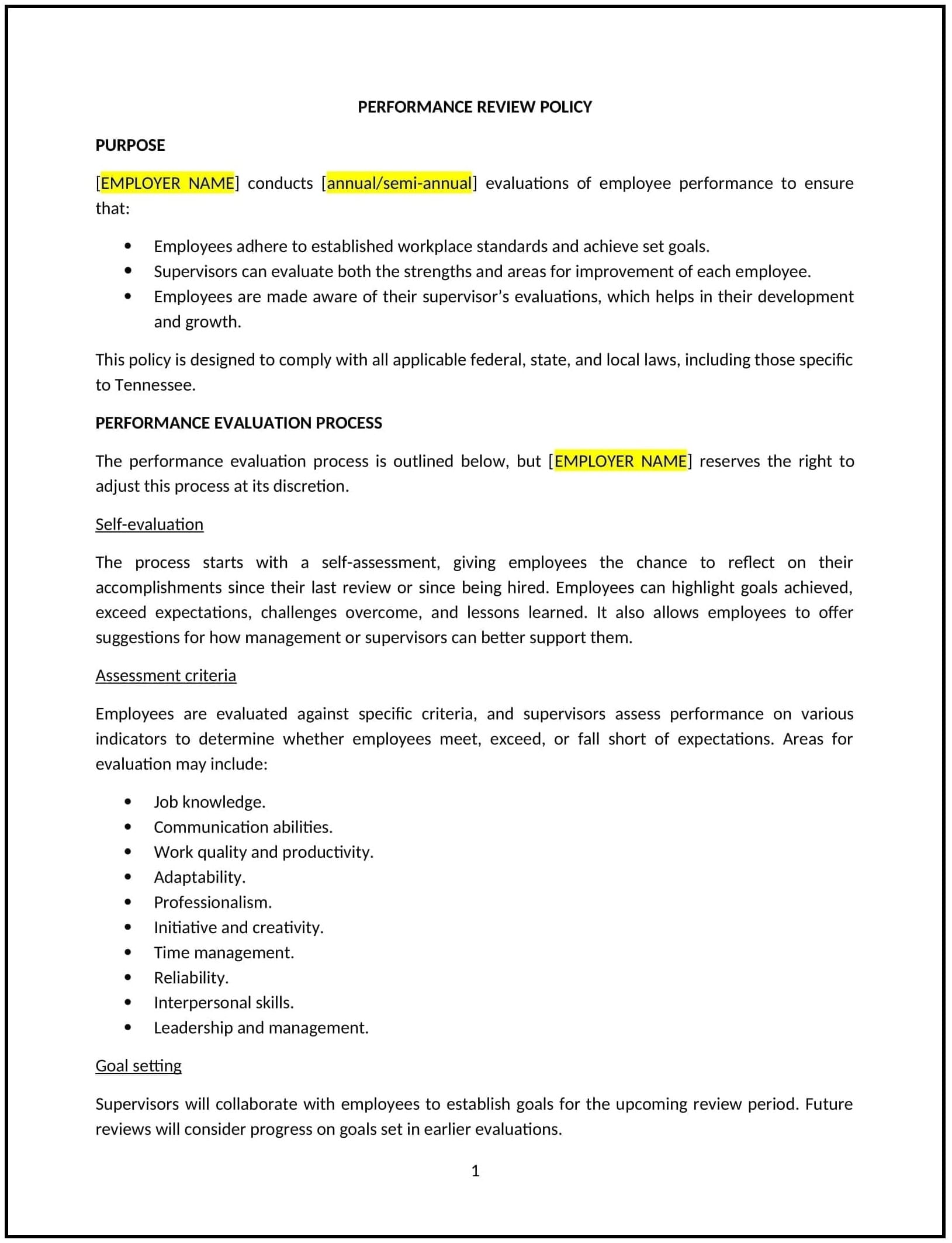Performance review policy (Tennessee): Free template
Got contracts to review? While you're here for policies, let Cobrief make contract review effortless—start your free review now.

Customize this template for free
Performance review policy (Tennessee)
This performance review policy is designed to help Tennessee businesses establish guidelines for evaluating employee performance. It outlines procedures for conducting fair, consistent, and constructive performance reviews to support employee development and organizational goals.
By adopting this policy, businesses can enhance employee performance, provide clear feedback, and align individual goals with business objectives.
How to use this performance review policy (Tennessee)
- Define review frequency: Specify how often performance reviews will be conducted, such as annually or semi-annually.
- Set evaluation criteria: Outline the metrics and behaviors used to assess performance, such as job skills, productivity, and teamwork.
- Address feedback delivery: Provide guidelines for delivering constructive feedback and setting performance goals.
- Train managers: Educate supervisors on conducting fair and effective performance reviews.
- Review and update: Assess the policy annually to ensure it aligns with evolving business needs and employee expectations.
Benefits of using this performance review policy (Tennessee)
This policy offers several advantages for Tennessee businesses:
- Enhances performance: Provides employees with clear feedback and goals for improvement.
- Supports development: Encourages employee growth through constructive feedback and training opportunities.
- Promotes fairness: Ensures consistent and unbiased evaluation of all employees.
- Aligns goals: Links individual performance with organizational objectives.
- Aligns with best practices: Supports a structured approach to performance management.
Tips for using this performance review policy (Tennessee)
- Communicate the policy: Share the policy with employees and include it in the employee handbook.
- Provide training: Educate managers on conducting fair and effective performance reviews.
- Monitor compliance: Regularly review performance review processes and outcomes to ensure adherence.
- Address issues promptly: Take corrective action if performance reviews are mishandled or inconsistent.
- Update regularly: Assess the policy annually to ensure it aligns with evolving business needs.